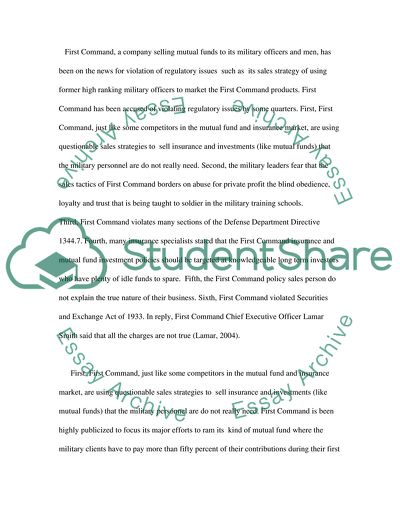Cite this document
(First Command Financial Planning: Recent Trouble with Regulators Case Study, n.d.)
First Command Financial Planning: Recent Trouble with Regulators Case Study. https://studentshare.org/finance-accounting/1709090-first-command-financial-planning-recent-trouble-with-regulators
First Command Financial Planning: Recent Trouble with Regulators Case Study. https://studentshare.org/finance-accounting/1709090-first-command-financial-planning-recent-trouble-with-regulators
(First Command Financial Planning: Recent Trouble With Regulators Case Study)
First Command Financial Planning: Recent Trouble With Regulators Case Study. https://studentshare.org/finance-accounting/1709090-first-command-financial-planning-recent-trouble-with-regulators.
First Command Financial Planning: Recent Trouble With Regulators Case Study. https://studentshare.org/finance-accounting/1709090-first-command-financial-planning-recent-trouble-with-regulators.
“First Command Financial Planning: Recent Trouble With Regulators Case Study”. https://studentshare.org/finance-accounting/1709090-first-command-financial-planning-recent-trouble-with-regulators.


